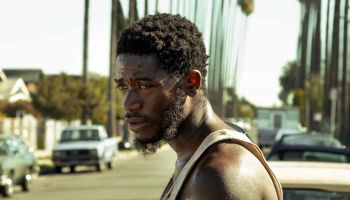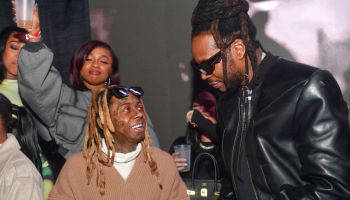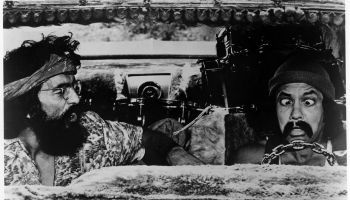When I heard the not guilty verdict announced live, I was attending a national gathering of one hundred 18-30 year-old Black activists in the Chicago area organized by the Black Youth Project. The reaction of the young people in the room to the news that George Zimmerman would not be held accountable by the nation’s criminal justice system will forever be etched on my memory.
Most were shocked. Angry. Outraged. Disappointed. But their tears, outcries and rage were all accompanied with a clear and unflinching determination that this will not be the last word in the battle for justice for Trayvon Martin.
Their shock and surprised revealed that this was a profound generation-specific moment, a collective emotional response that connected to this generation in the way that the Rodney King beating affected an earlier generation—much like the assassinations of Martin Luther King, Jr. and Malcolm X stunned the generation before us.
The verdict didn’t come as a surprise to me. Living as a Black man in America has a strange and steady way of changing your perception of this nation as a refuge of justice. Politicized by America’s attitude toward Black men throughout my entire life, I have never received any social cues from my childhood years into adulthood that this nation values the lives of Black men, or Black life in general.
To the contrary, what is constantly reinforced and restated in everyway imaginable is the idea that in this country a white life is more valuable than a Black life. It’s part of our educational structure. It comes screaming daily through our news media, our criminal justice system, and from all three branches of the federal government, be it the Supreme Court, Congress or even the president himself.
It is natural that folks who are parents of Black boys, brothers and sisters of Black boys, friends and relatives near and far will think in this moment about their own sons. This can quickly descend into a polluted sympathy. We should feel for Trayvon and his family, not because of a projected sense of pain or fear, but because his murder was wrong. Likewise, the “not guilty” verdict was itself a grave injustice.
I am the father of a 14 year-old Black boy. He’s just a few years younger than some of the attendees gathered together at the Black Youth Project 100. George Zimmerman’s not guilty verdict doesn’t make me feel my son’s life is any less safe today than yesterday. I say this because I don’t expect America’s current sense of justice to protect my son. As a Black father, you make your peace early that your offspring are children of the universe: they may enter the world through you, but they don’t belong to you.
I was reinforced in this comfort by a chance meeting with Sybrina Fulton a few months ago. She is strong, poised and focused on a truer sense of justice. Her outlook is inspiring and instructive. I imagine, she is a lot like Mamie Mobley, the mother of Emmett Till. Her commitment, like Emmett Till’s mom, is to expose to the world the viciousness of white supremacy and to protect other Black children from the hypocrisy of a purported Christian nation with a perverted sense of justice.
I am reminded here of the poet-activist Haki Madhubuti, who wrote extensively about the plight of Black men in America long before it was fashionable. He insisted that a large part of the way we who are Black understand this reality is via the truth that “white supremacy is not only alive and well in America,” but that in fact, “it’s a growth industry.” His book was aptly titled, Black Men: Obsolete, Single, Dangerous?
Despite the social cues from America that Black males don’t matter, beyond the money they can generate for mega corporations, we have to continue to hold on to the truth that these children of the universe are as sacred as all others—no matter how much we are told to the contrary. We should do this for Trayvon Martin and for ourselves.
Along with this truth, the takeaway message from the “not guilty” verdict is this: if police, law enforcement and by extension, self-appointed neighborhood watch vigilantes are authorized to kill your son or mine with impunity, then it is up to us to invoke our own justice—because today the country we call home has shown us again that we have no justice coming from anywhere else.
Bakari Kitwana is the Executive Director of Rap Sessions, Senior Media Fellow at the Harvard Law based Jamestown Project, and the author of the forthcoming Hip-Hop Activism in the Obama Era.
















